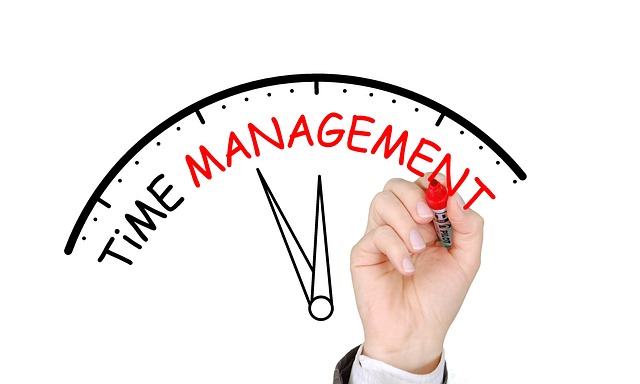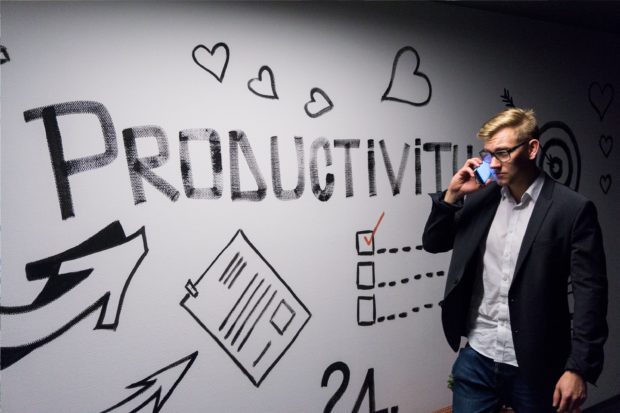Four Productivity Secrets to Help Students -or Anyone- Get More Done
As a student, your attention gets pulled in a million directions: homework and exams for your classes, meetings for student organizations, applying to jobs or internships, making new friends, exercise, family, sleep… the list goes on and on.
On top of that, staying focused is hard. We live in a golden age of distractions, and every website and device seems to be conspiring to hook us away from the projects and tasks that matter.
We all have the same 24 hours in a day, but some students understand certain productivity secrets that allow them to get more done in less time. When you implement these four tips, you will have more free time to spend the way you want.
Understand the Fundamental Productivity Equation
Work Accomplished = Time Spent x Intensity of Focus
What you get done isn’t just about how much time you spend; it’s about how intensely you are focused on the task you are doing. Author Cal Newport coined the term “pseudo-work” to describe when someone is technically “working,” but spending so much time checking their phone, switching tasks, and chatting with friends that they don’t get much done. Any student who has spent time watching students in their college library knows what pseudo-work looks like.
This equation means that you can accomplish more in less time if you work more intensely. You should still take frequent breaks, but during “work” time, you should be fully present and engaged in the task you are doing.
One time management technique called “Pomodoro Technique” involves short bursts of 25 minutes of focus followed by a 5-minute break. You might also decide to work for 50 minutes then take a 10-minute break. Experiment to find what works best for you.

Turn off Notifications
Notifications are engineered to hijack your brain. Every time you see a pop-up, feel a buzz, or hear a beep from your phone, your brain releases a chemical called dopamine which gives you a brief feeling of happiness. Unfortunately, this makes notifications addicting, often leading to anxiety, loneliness, and distraction.
Willpower is overrated when it comes to avoiding distractions. No normal human being can look away from a TV show playing in their room or a buzzing phone on their desk. You don’t need more willpower; you just need to control your environment.
The solution is to turn off all notifications during times you are working by putting your phone in airplane mode. If you implement this habit for just two to four hours throughout each day, you will see a massive increase in your productivity.
Even when you aren’t doing intense work, it’s a good idea to only use notifications for your calendar and messages. You’ll find yourself checking your phone less often, giving you more time to devote to people and projects that matter to you.
Create a Schedule for Every Day
The best way to accomplish what you want is to use your calendar or planner to make a schedule for every day. Your goal isn’t to be perfect—some tasks will take longer than planned, and unexpected things will pop up. However, the act of planning your day will give you a structure for success. You will never need to ask, “What should I be working on now?” You can just put your head down and follow the plan.
Let’s run through an example. You wake up Tuesday morning at 9am and want to plan your day. You have class from 11am-12pm and 3-4pm, and you have a group meeting from 4-5pm. But you also have 50 pages to read for the later class, two small homework assignments, a history test in two days to study for, and you want to spend 30 minutes contacting professionals for career conversations. And you want to be done by about 6pm to exercise, eat dinner, and relax for the night.
Here’s what your schedule might look like:

Beat Procrastination by “Eating the Frog”
What does it mean to “eat the frog”? It means that every day you do your ONE most difficult and important task first.
Let’s say it’s Wednesday morning of the week before final exams. You have three small assignments due the next day, which will each take about 30 minutes. Also, you haven’t spent enough time studying for your economics exam, which you think won’t be too challenging. Finally, what’s stressing you out most is that you haven’t started writing the big English paper due next week. What should you work on?
You need to differentiate between your urgent tasks and your important tasks. In this case, starting your English paper is likely the most important task, even though it isn’t as urgent. You should start your day by working on the essay and then work on the other assignments later.
Sometimes you have 12 things to accomplish in a day. Applying the “eat the frog” technique means that you shouldn’t worry about all 12 at once. You should start by devoting focused time to only one task that you believe is most crucial to your future success.
By applying these four simple productivity techniques, you’ll soon find that you have more time to get everything you need to do done—with less stress.
This guest post was authored by Sean O’Keefe
Sean O’Keefe is an award-winning professor, respected researcher, and sought-after speaker on creating social capital, career readiness, internships, and jobs. He is the founder and chief impact officer of Career Launch, a social enterprise that partners with colleges and career programs. Sean earned his BA in communication at the University of California, Santa Barbara, and his MBA from Santa Clara University. He is the author of LAUNCH YOUR CAREER: How ANY Student Can Create Relationships with Professionals and Land the Jobs and Internships They Want (Berrett-Koehler Publishers), written in partnership with The Career Leadership Collective.


